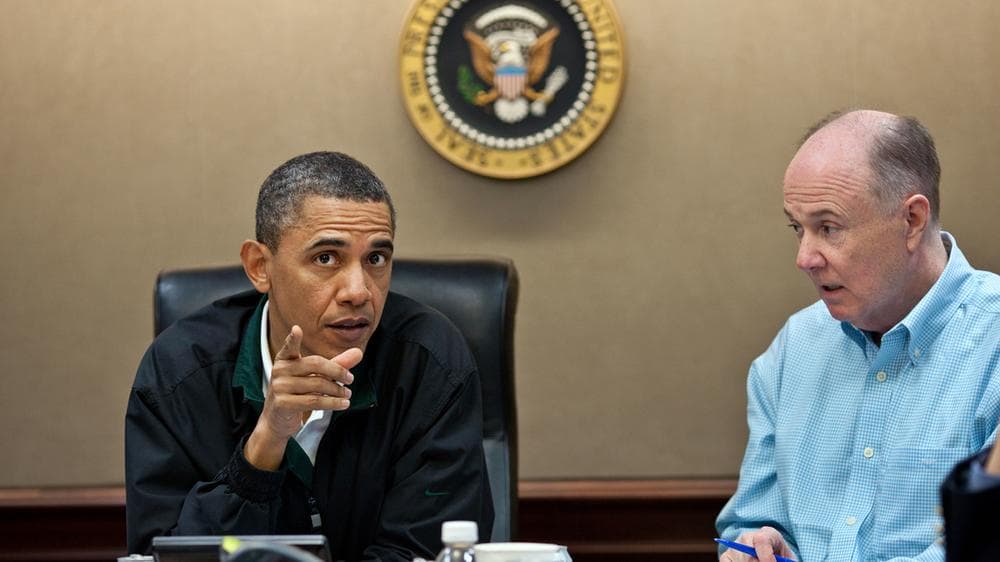Advertisement
Dems' Foreign Policy ‘Muscle Flexing:’ Election Game Changer?

Pretty much everybody has noticed by now — except maybe the staff over at Tea Party headquarters — that the Democrats and President Barack Obama had a very good convention. It’s obvious even to hardened Republican operatives like me.
Fewer noticed a convention detail that’s both revealing and interesting; a surprising thread that was peppered throughout the speeches and videos of the event’s final night: the Democratic muscle-flexing regarding foreign policy and the military. It was intricately planned, pervasive and a strategy not seen before in modern Democratic presidential campaigns.
Obama reinvented the modern campaign in 2008 with new techniques and technologies for fundraising, organizing, and micro-targeting. The tactic of stealing the historically Republican foreign policy and pro-military advantage may be his second act.
Nobody expected Obama to open up a foreign policy front against Mitt Romney, but now he has. In the card game Hearts, it’s called shooting the moon; in football, going for it on fourth down: a risky play that will either backfire or seal your victory.
Obama reinvented the modern campaign in 2008… The tactic of stealing the historically GOP foreign policy and pro-military advantage may be his second act.
Decades of polling data show a distinct Republican advantage with voters in terms of who will do a better job in foreign and military affairs, but the Obama campaign is attempting to buck that tide.
The strategy was present throughout Thursday’s three hours of prime time. John Kerry made fun of Romney’s overseas mishaps and chastised him for not mentioning American soldiers in war zones during his convention speech in Tampa. Joe Biden’s son Beau, a veteran of the Iraq war, was selected to place his father's name into nomination for vice president. Veterans took to the stage at a featured time to announce their support for the president. The first lady’s efforts on behalf of military families were highlighted. Romney’s 2007 uncertainty about keeping resources deployed to find Osama bin Laden was pointed out. The featured video was chock-full of photos of the president in the Situation Room.
But nowhere was the strategy more evident than in the president’s speech.
My opponent and his running mate are ‘new’ to foreign policy, Obama chided.
Oh, and by the way Romney insulted our greatest ally, Great Britain, during the Olympics…
The commander in chief’s remarks contained more overt patriotism and flag waving than at any Democratic convention in recent memory.
My grandfather was a soldier in Patton’s Army…
A new tower rises above the New York skyline…
And of course, a lot of: Bin Laden is dead. Bin Laden is dead. Did we mention that bin Laden is dead?
The Obama campaign must be seeing in their polling a weakness in Romney that they believe they can exploit. A point in their favor is that the former Massachusetts Governor is not John McCain — someone who served in the military, has decades of foreign policy experience and this formidable gravitas.
What’s more is that Romney likely helped sparked the idea by not mentioning in his convention speech, let alone talking about extensively, the tens of thousands of American soldiers deployed overseas.
It was a mistake, and the Obama campaign reacted nimbly.
This development is something I’ll be watching in the fall. If Obama decides to pursue the strategy, he is taking a big risk, as it gets him away from his more conventional messaging. We’ll see if it pays off.
This program aired on September 10, 2012. The audio for this program is not available.